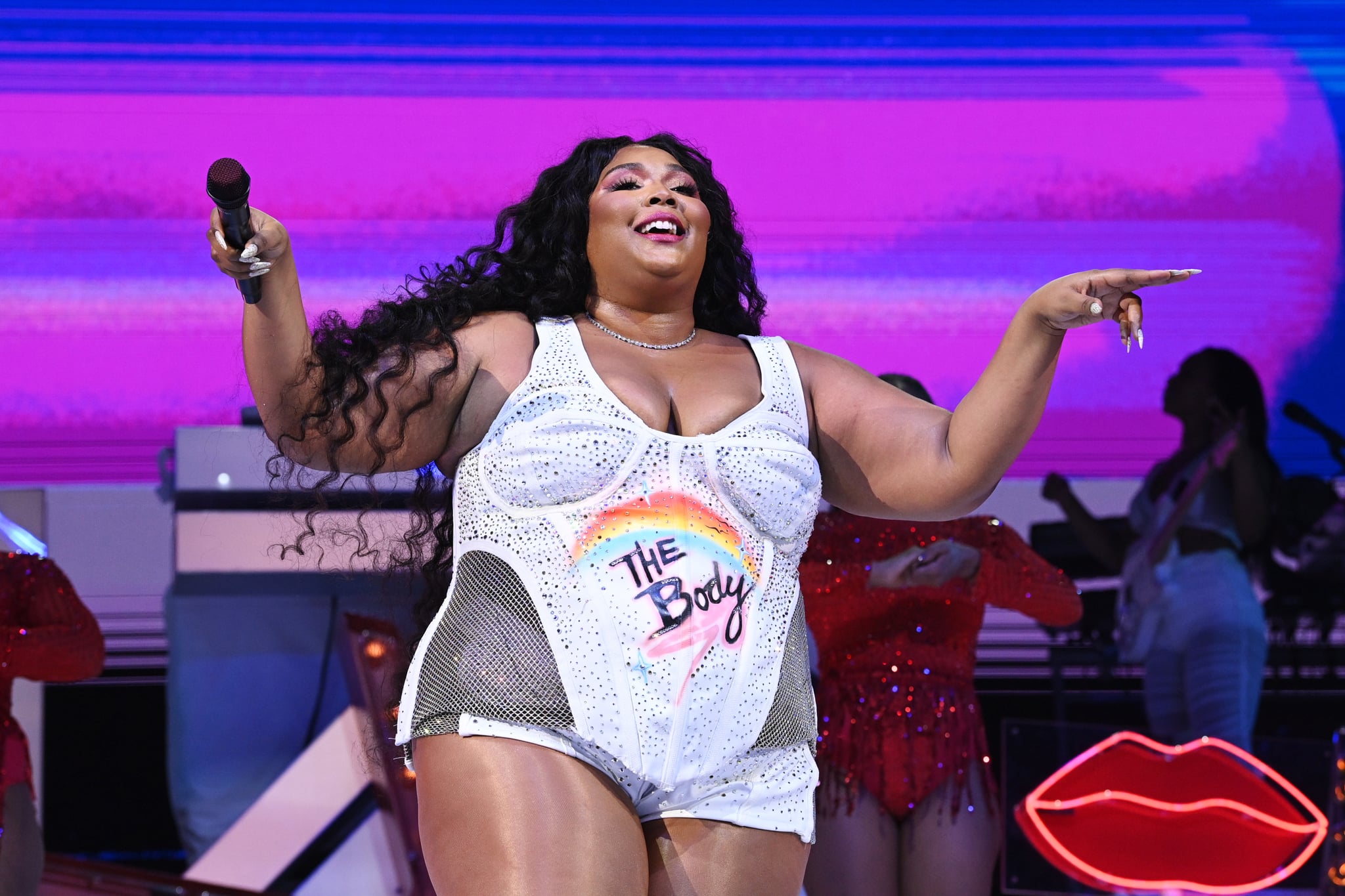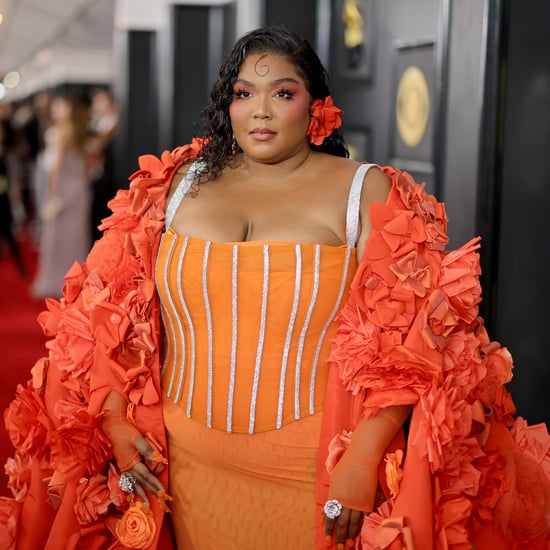Lizzo on Taking on Fame and Fat Stereotypes
To Lizzo, "I Get Tired Just Watching You Perform" Isn't Exactly a Compliment

You can always count on Lizzo to call out the back-handed compliments that large-bodied people hear all too often: that she's "brave" just for being herself, as if existing in her body is an amazing feat; how incredible it is that she can perform the way she does — with energy, confidence, strength, and stamina. It's why she doesn't like it when fans try to compliment her by saying something like "I get tired just looking at you perform." No matter the intention, those comments stem from harmful, outdated stereotypes, the very perceptions that Lizzo is trying to change.
"I don't think they're doing it maliciously," Lizzo says of the "I get tired just watching you" comments, speaking in a cover story interview with Variety. "I definitely think they're conditioned to believe that bigger bodies don't have enough stamina to perform at the level that I do." For so long, Lizzo explains, "we have been depicted on television and in movies as 'lazy,' and huffing and puffing while the other thinner characters are jogging." It's a stereotype that Lizzo is very familiar with. "What I'm trying to do is dismantle every stereotype that I have the power to do," she explains. "I'm destroying them by just living and being incredible all the time."
You could fill several books dissecting the harmful ways that large bodies have been represented in media. For her part, Lizzo remembered being affected by the ways large bodies were represented in some Eddie Murphy films, like "The Nutty Professor." Murphy "definitely had a collection of fat-suit movies that people would be laughing at, but I would feel sad," explains Lizzo, recalling a scene where Professor Klump opens a desk drawer to reveal a collection of candy. "I could literally cry right now thinking about it," she says. "People around me were laughing, but I hide food too. I feel him. I feel sympathy and empathy for him."
Even beyond the stereotypes she faces, Lizzo adds that fame has been a challenge for her mental health. She got famous, the singer says, but "my anxiety didn't go away. My depression didn't go away." People's perception of her changed, though, in a way that forced her to alter basic parts of her life — the way she moves about in public, the extra precautions she has to take. "I don't want to seem ungrateful," Lizzo says. "It was sad, and I had to talk to my therapist about the loss of who I was."
Lizzo has been open about much of her journey with fame and identity, whether she's sharing her struggles with body dysmorphia and negative thoughts or explaining why she went vegan and is learning the splits, and we always come away with more to think about and digest. As for the attention and life in the public eye, "I'm good with it now," Lizzo assures everyone. "I'm fine. I'm young. I'm talented. I deserve the attention."








